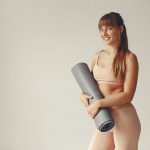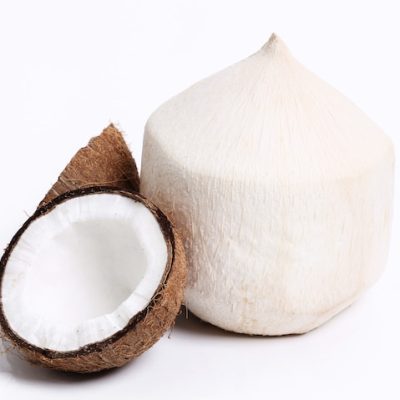If your stomach has been acting up lately, you might find comfort in knowing that you’re not alone. Many people deal with the troublesome condition known as Irritable Bowel Syndrome (IBS). Fortunately, we have a helpful ally – probiotics for digestive issues. Let’s discuss how these friendly bacteria could be the support your gut needs!
First, what are probiotics? Think of your gut as a lively city. The residents? They’re microorganisms. In this city, probiotics are your helpful neighbors. Probiotics are living microorganisms, primarily bacteria, but they also include some yeast. If the word ‘bacteria’ makes you uneasy, don’t worry! These are not the harmful kind. Instead, they are beneficial companions, and when present in the right amounts, they can provide various health benefits.
These benefits range from improving digestion to boosting your immune system and even enhancing your mental health. Essentially, they help keep your gut city balanced, ensuring everything runs smoothly. But where can you find these friendly neighbors? They love to hang out in trendy culinary spots – fermented foods. This includes a variety of items like yogurt, kefir, sauerkraut, kimchi, tempeh, and kombucha. Eating these foods is like attending a gathering filled with probiotics.
Yogurt and kefir, for example, are dairy products fermented by lactic acid bacteria and bifidobacteria. They’re not just creamy and delicious; they’re also excellent sources of probiotics. Sauerkraut and kimchi are fermented cabbage packed with these helpful microbes, adding a tangy flavor to your meals. And let’s not forget about probiotic supplements, which can also help populate your gut with these beneficial microbes, especially if fermented foods aren’t your preference.
The key is balance and diversity in your gut city. A variety of probiotics can provide a broader range of health benefits, as each strain of bacteria has its unique role. So, it’s wise to mix things up and invite different probiotic friends to your gut community!
In a recent study, women taking probiotics lost 50% more weight than those who didn’t. Your gut health and nutrient absorption are important. Don’t forget to include a daily probiotic.
Imagine your gut as a lively garden party. The guests at this party are a diverse mix of microorganisms, including bacteria, viruses, and fungi, which together form the gut microbiota. This gathering is carefully organized, with each guest playing a role in keeping the gut ecosystem healthy.
But what happens when some unwanted guests crash the party, or things get a bit too chaotic? That’s when issues like Irritable Bowel Syndrome (IBS) arise, disrupting the gut ecosystem. IBS can lead to uncomfortable symptoms such as bloating, abdominal pain, and irregular bowel movements that can interfere with your daily life.
This is where our peacekeepers, the probiotics, come in. Acting as mediators, they help maintain harmony among the diverse guests at the gut party. They ensure the atmosphere remains calm and balanced by promoting beneficial bacteria and removing the uninvited guests. Probiotics also have other impressive abilities, like strengthening the immune system – think of it as the party’s security team. They help fend off harmful pathogens, ensuring your gut stays a safe and happy place for beneficial bacteria.
Additionally, probiotics play a crucial role in digestion. They assist in breaking down food, improving nutrient absorption, and promoting regular bowel movements. In other words, they ensure the food at the party is well managed. Research consistently shows a link between an imbalanced gut microbiota and IBS. When the gut party gets too wild, and order turns to chaos, it can lead to the uncomfortable symptoms associated with IBS.
Probiotics for digestive disorders, including IBS, can help restore this balance. By encouraging a healthy diversity of gut bacteria, probiotics can ease IBS symptoms and keep your gut party enjoyable and well-balanced.
You might be wondering, “Okay, so these probiotics sound helpful, but how exactly do they assist with my IBS?” That’s a great question, and the good news is that these tiny allies are quite powerful. First, probiotics can help reduce bloating and gas, two unwelcome guests often seen at the IBS party. By balancing your gut’s flora, probiotics help control gas production, leading to less bloating and discomfort.
Now, let’s address pain – those tough abdominal cramps that IBS can bring. Probiotics can help here too. They interact with your gut nerves that control muscle contractions, helping to ease abdominal pain. But the benefits of teaming up with probiotics don’t stop there. They also promote smooth digestion, leading to better nutrient absorption and more regular bathroom visits, keeping your gut health on track.
The best part? These benefits aren’t just a one-time occurrence. With regular use of probiotics, you can maintain these advantages, like a wellness subscription for your gut. Studies and clinical trials support this, showing that probiotics can be a valuable partner in managing IBS symptoms over the long term.
Choosing a probiotic isn’t as simple as grabbing the first one you see. It’s more like a careful shopping trip. Not all probiotics are created equal, especially regarding IBS. Different strains, like Bifidobacterium and Lactobacillus, have shown positive results in alleviating IBS symptoms, so it’s important to know your strains.
Colony Forming Units (CFUs) are another factor to consider. This number indicates the amount of live microbes in a probiotic supplement. It’s tempting to think that a higher CFU count is always better, but that’s not necessarily true. It’s not about having more; it’s about finding the right dose for you.
Choosing a reputable brand is also essential when selecting a probiotic. Just as you’d choose trustworthy brands for clothes, the same applies here. Look for quality assurance to ensure you’re getting a product that delivers on its promises. Personal preferences matter too. Everyone is unique, and a probiotic that works wonders for someone else might not suit you. If a particular probiotic doesn’t agree with you, don’t hesitate to explore other options until you find one that fits well.
And of course, don’t underestimate the value of professional advice. Consulting with a healthcare professional can provide valuable insights and help you find the probiotic that meets your specific needs. Just as a stylist can help you find the perfect outfit, a healthcare professional can guide you to the most effective probiotic for your IBS.
Probiotic supplements are a great way to introduce these beneficial microbes into your system, but they’re not the only option. You can also invite these friendly gut guests through your diet. There are several probiotic-rich foods you can easily add to your meals. Yogurt is a popular choice; it’s like the life of the party when it comes to probiotic foods. It’s loaded with beneficial strains like Lactobacillus and Bifidobacterium, which can be great for your gut health.
Another excellent option is kefir, a fermented dairy product similar to yogurt but typically containing a wider variety of probiotic strains. Fermented foods are another way to incorporate probiotics into your diet. Miso, a Japanese seasoning made by fermenting soybeans, is full of good bacteria and can easily be added to soups and dressings. Sauerkraut, or fermented cabbage, is a tasty and tangy food rich in probiotics, making it a great addition to sandwiches or as a side dish.
While adding these foods to your diet can be beneficial, it’s also important to maintain an overall balanced diet. After all, even the best parties need a variety of guests to keep things interesting and running smoothly. So, alongside these probiotic-rich foods, make sure you’re getting plenty of fiber, staying hydrated, and including a variety of nutrients to support your overall health and gut health.
Incorporating probiotics into your diet doesn’t have to be complicated or dull. By adding these foods to your meals, you’re not only treating your taste buds but also giving your gut health a boost! It’s clear that probiotics for digestive disorders are like the unsung heroes of gut health.
Living with IBS can often feel like a constant search for relief, much like hunting for that perfect dress that fits just right or that date that feels tailored to you. Probiotics can be that perfect fit, helping to ease some of the discomforts associated with IBS, such as bloating, gas, and abdominal pain.
But here’s where the search for that ‘perfect fit’ comes in – choosing the right probiotic supplement. Just as you would take your time selecting a dress or deciding on a date, it’s crucial to put thought into picking a probiotic supplement. Remember, quality, strain, CFUs, and your body’s response all matter.
If you’re feeling overwhelmed by the options available, let us suggest: Gut-13, Avocadu’s Premium Probiotic. This product has been designed with your gut health in mind, containing a variety of strains, including the Bifidobacterium and Lactobacillus strains we mentioned earlier. With quality assurance you can trust, Gut-13 may just be the ally your gut has been waiting for.
Probiotics are essential for maintaining and restoring gut health, especially for those living with IBS. So whether you choose to add more probiotic-rich foods to your diet or opt for a supplement like Gut-13, remember – your gut is worth the investment. Here’s to your health!










